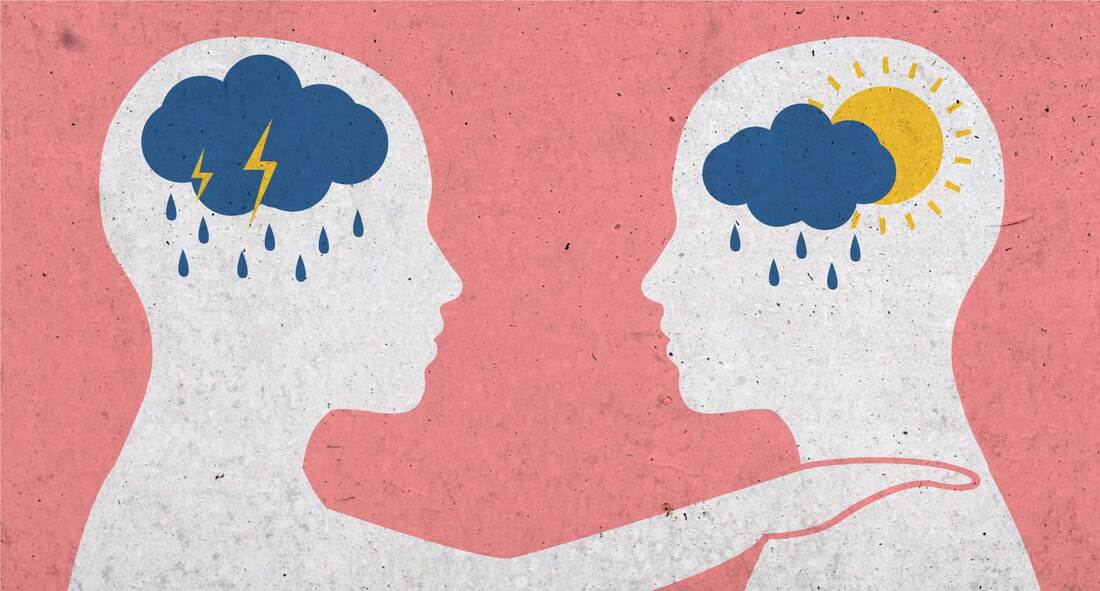|
This is not to be confused with Special Snowflake Syndrome (SSS) which is all about satisfying personal demands for special treatment, often claiming empathy for others but is in reality a form of hypersensitive self-importance.
To be aware of the legitimate suffering of others carries an attitude of gifting and service. Done badly it can look like martyr-posturing. Done well it’s about care, and these people are usually resilient, clear thinking and justice oriented in the truest sense. In contrast SSS is narcissistic and ultimately self-oriented, caring primarily for their own concerns and interests. Often politicising personal issues, people with SSS seldom hesitate in personalising attacks, and always personalise offence. You know an SSS is near because there is a sense of having to be careful not to offend them …cos they’re special and flaky. Guess which has the better mental health!
They pre-form opinions without hearing all the information, and react out of a preferred feeling. It has been said that small thoughts fit easily into a closed mind, but it requires an open mind to hold big thoughts.
The refusal to hear the other person’s opinion or ideas can indicate a closed mind …which is what we see from woke-social-justice warriors who want to control social narratives. Emotional-minded people are always small thinkers. The use of the reasoning-mind rather than the emotional-mind helps us hear other opinions and see the full picture. The problem with emotions is they can be sincere, but also sincerely wrong. To rely solely on your feelings is to put yourself and others at risk. The Golden Rule to remember is this; our emotions can lie to us. 26/3/2020
So You Want To Change the World (again)!What that means is we will never be at peace within ourselves if we keep covering up our ‘shit’.
The more honest we are about ourselves, the more we are able to heal ourselves, and be a healer to those around us. The more we own our issues and address them, the safer we will be for-and-to others. This isn’t about social activism where we buy public favour; it’s about being a whole person who doesn’t need to use activism-related agendas to feel good about themselves. And when you can relax with yourself while being honest about your mistakes, others will find you as more trustworthy. 26/3/2020
Working On You, Before the WorldI appreciate that sounds harsh, but here’s an example of this principle: those who practice domestic violence usually do it behind closed doors. In public they have one face, in private they have another.
In public they (male of female) may be the consummate professional or member of a church who does sooo well, yet behind closed doors they act out their true selves. They are the people who have never learnt to manage the ‘small’ things …like personal integrity. 26/3/2020
The Truth or Just Truth-Bait?That truth-bit is better called the ‘truth-bait’ because it helps lure people into believing something that is not completely accurate, just as a fish is tricked into biting onto a baited hook.
And just like when a fish takes the bait and it’s caught, so we can be caught into something that ultimately can become deadly to friendships or any other meaningful relationship if we keep telling lies. Beware of using truth-bait to manipulate …eventually, sometime late, it will come back to hook you. 26/3/2020
Taking Shots At GossipThey seldom come out and say what’s on their mind unless they feel trapped, and then they assume victimisation, or the martyr-complex …or come out in a vicious rage that makes people think twice before ever confronting them again.
And there’s the key; gossips operate from a fear-based position. They fear honesty and openness. Ironically, they also fear of being judged for the weak people they actually are, and rather than owning and healing this they avoid healthy confrontations that would otherwise promote personal mental health and trusting relationships. Gossips are people who will never be a true friend, because they will never value your care and integrity if you question/challenge their motives, ideas or conclusions. 26/3/2020
Rage AddictionSome people will rage at having a disappointment, assume offence, experience failure or blame shift.
The more passive-aggressive rages can be seen in gaslighting (manipulating others by sowing seeds of doubt about their integrity and motives) and gossip. Why gossip? Because it’s a form of character assassination where the intention is to harm another. The person who gossips is someone who doesn’t have the strength to be fully open or honest. Don’t be mistaken here; a gossip does not deserve your mercy, they deserve contempt because their words are designed to hurt others while simultaneously manipulating you into co-operating with their agenda. 26/3/2020
Relationships: 'Thinking/Guessing'If we stay in that position of ‘thinking-guessing’ we can quite unintentionally lock ourselves into a mind-set that will almost guarantee that we will become angry or offended by the other person – it will happen because guesses are a poor substitute for knowledge.
Take the time to find out what your partner wants; if they won’t be honest about that, then best move on and find someone who will be honest. 26/3/2020
Don't Despise the Day of Small ThingsThat goodness may have started with an affirmation, or gesture of care, or a good decision.
Second, the most destructive ideas and behaviours also started small before they became a problem behaviour or addiction. Gratitude helps us stay aware of the small but valuable attitudes that go to care – of ourselves and of others. The destructive behaviours also start with small attitudes, usually negative and/or mis-informed attitudes, and so often allow a lie to be built into our reasoning …and lies never, ever work to our benefit in the long run. Gratitude helps protect us from the small lies before they become big problems. Yet real gratitude values honest evaluations to distinguish and separate good from bad, and healthy from unhealthy; this needs to be practised every day. The current model rests heavily on Rogerian precepts of …well, being nice. And that’s where the problem starts, because there is no reason why you/me/anyone should be ‘nice’ about any form of bad behaviour.
The Golden rule about counsellors: if they don’t call you on your selfishness, bad behaviours and petty tantrums you’re probably throwing your time and money away. |
AuthorRob McGregor. ArchivesCategories |










 RSS Feed
RSS Feed

26/3/2020